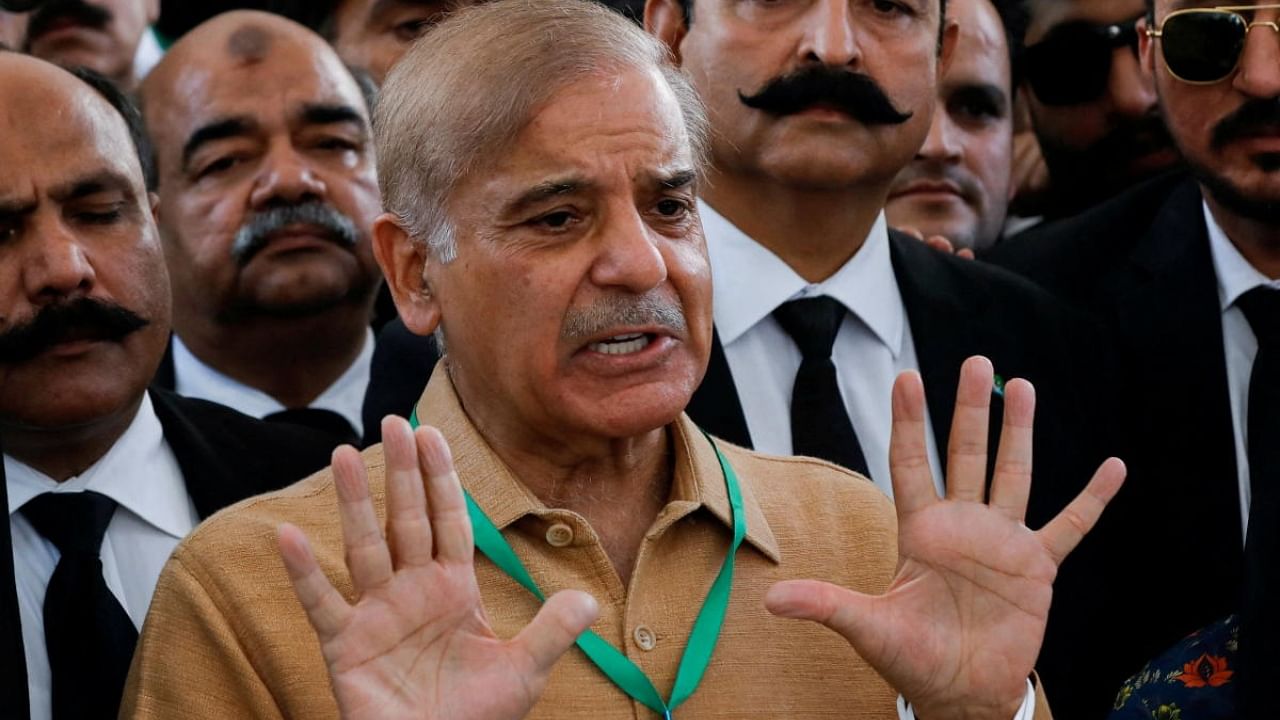
Pakistan has "learnt its lessons" after fighting three wars with India and it now wants to "live in peace", the neighbouring country’s Prime Minister Shehbaz Sharif told a TV channel. However, his office in Islamabad was quick to dismiss speculations about an offer for talks with New Delhi.
“We had three wars with India and it only brought more misery, poverty and unemployment to the people,” Sharif told Al Arabiya news channel based in Dubai on Monday. “My message to the leadership of India and Prime Minister Narendra Modi is that let us sit down on the table and have serious and sincere talks to resolve our burning issues like Kashmir”.
Soon after the Al Arabiya aired his interview, Sharif’s comment was interpreted by some as a subtle offer by Islamabad for talks with New Delhi. His office, however, clarified on Tuesday that any negotiation between Pakistan and India would not take place untill Modi government in New Delhi reverses its August 5, 2019 move to strip Jammu and Kashmir of its special status and split the state into two Union Territories. The prime minister “consistently maintained that Pakistan and India must resolve their bilateral issues, especially the core issue of Jammu and Kashmir, through dialogue and peaceful means”. “However,” according to the statement issued in Islamabad on Tuesday, “the prime minister has repeatedly stated on record that talks can only take place after (the Government of) India has reversed its illegal action of August 5, 2019. Without India's revocation of this step, negotiations are not possible.”
Sharat Sabharwal, New Delhi’s former envoy to Islamabad, however, said that the excitement over the remarks by the Prime Minister of Pakistan was “unwarranted”. “He (Sharif) made peace conditional upon resolution of the Kashmir issue that has defied a solution. Any glimmer of hope in his remarks was nullified by the subsequent clarification issued by his office,” Sabharwal told DH.
Sharif has been leading the Pakistan Democratic Movement (PDM) government since April 2022 after the coalition succeeded in ousting Imran Khan from the office of the prime minister. His government has been under attack from Pakistan Tehreek-e-Insaaf led by Khan. The country has also been going through a severe economic crisis aggravated by a devastating flood and the PDM government has been in talks with the International Monetary Fund for a bailout package as well as with Saudi Arabia and United Arab Emirates for financial assistance.
The Tehreek-e-Taliban Pakistan has also been stepping up terror strikes across the country. The spurt in TTP’s terror strikes over the past few months worsened Islamabad relations with the Taliban regime in neighbouring Afghanistan, where the Pakistan Army wanted to get a strategic edge with the help of the Sunni Islamist militia that it had nurtured over the decades and helped wrest power in Kabul in August 2021.
Sharif was on a tour to the United Arab Emirates last week. He had a meeting with the UAE’s President Sheikh Mohammed bin Zayed Al Nahyan in Abu Dhabi. He told Al Arabiya that he had requested the UAE leadership to mediate between Pakistan and India.
He said that Pakistan and India were neighbours and they would have to “live with each other”.
The formal dialogue between India and Pakistan remained stalled since January 2013.
“We have learnt our lesson and we want to live in peace provided we are able to resolve our genuine problems. We want to alleviate poverty, achieve prosperity, and provide education and health facilities and employment to our people and not waste our resources on bombs and ammunition, that is the message I want to give to Prime Minister Modi," Sharif told the channel.
An attempt to restart formal bilateral dialogue by Modi and Sharif’s brother and then prime minister M Nawaz Sharif failed due to a series of attacks by the terrorists from Pakistan into military facilities in India in 2016, prompting New Delhi to launch a “surgical strikes” into terror infrastructure in the neighbouring country.
